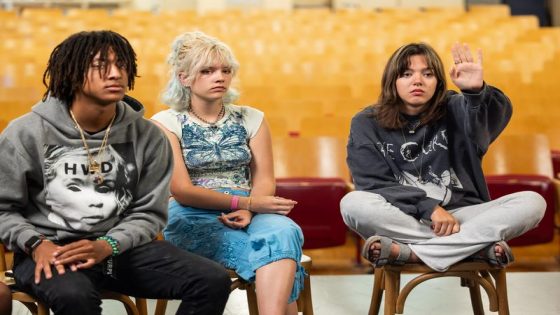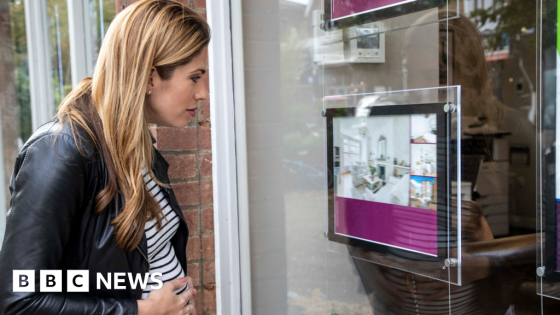Social media feels like it has always been here. From Instagram to TikTok, many of us spend a portion of our day mindlessly — or intentionally — scrolling through these platforms. But it wasn’t always like this. Facebook started just 20 years ago, and most millennials (and older people) can pinpoint the moment they first made their accounts. But Gen Z and the generations after have very different perspectives. In her new FX series, “Social Studies,” documentarian Lauren Greenfield examines social media’s harrowing and horrifying effects on a group of Los Angeles teenagers who have never known a world without it. Engrossing and troubling, the docuseries presents a time capsule of today while allowing the teens to speak for themselves.
“Social Studies” begins during the first week of school in late summer/fall of 2021. Greenfield centers on several teens from different high schools, races and socioeconomic backgrounds who return to the classroom after a year and a half of virtual learning through the pandemic. As the series opens, the audience can sense an undercurrent of anxiety. The teens are consumed by what to wear and how to act. Without the barrier of phones and laptop cameras, all 14 or so students Greenfield follows are apprehensive about returning to class in person.
Throughout the series’ five episodes, using her camera, screen recordings of the teens’ phones and footage from aspiring documentarian Jonathan, a Pacific Palisades student who runs the school’s video program, Greenfield unveils the most personal and vulnerable aspects of her subjects’ lives, which range from joyous to heart-wrenching and appalling. “Social Studies” addresses bullying, suicidal ideation, sexual assault, racial abuse, drug use and FOMO, among others. In Episode 1, “Social 101,” Greenfield candidly illustrates how the racial divide in America is mirrored online. As one student says, “I feel like one of the major beauty standards is that you kinda have to be Caucasian.”
While some of the themes, including body image, perfectionism and sexual exploration, are topics that adolescents across the decades have confronted, the magnitude, misinformation and compulsion to record every single aspect of their lives make the adventure of being a teen during this time so unique. Ella, a high school senior, and Sydney, a college freshman, reflect on the gross and frankly terrifying attention they received from adult men after posting sexy photos of themselves online. Still, the validation they get on these apps makes it challenging for them to pivot to posting about their passions and hobbies.
Episode 4, “Sex Ed,” and Episode 5, “Deletions and Culminations” are particularly disturbing. High school senior Sofia opens up about being raped by a classmate. Though she talked about the assault online, neither her friend group nor her school moved to take any action. It took fellow student Anthony’s vigilante justice to expose the alleged perpetrator on YouTube and Snapchat for the police and, finally, the school to take action.
Teenhood is a terrifying and tantalizing moment. Many of us can reflect on the past with photos and maybe even a few blurry videos to recall our most joyous and anguish-filled memories. In “Social Studies,” everything is in 4K and real-time. Viewers watch high school senior Ellie discard a lifelong friendship and her education for a boy. Early on in the year, Jack, a high school student known for his massive TikTok following and entrepreneurial spirit, throws a gigantic rager that ends as one teen overdoses and the venue gets destroyed. While these experiences are somewhat typical for this age, seeing them permanently captured is not. There is also something unnerving about watching teens make horrifying choices that can alter the course of their lives.
This is not to say all of the series’ subjects are maladjusted solely because of social media. “Social Studies” also follows Cooper, a senior who uses her podcast to discuss body dysmorphia, and how body image can get so fragmented due to these platforms. Dominic and Jonathan volunteer at Teen Line, a mental health support line that often fields calls about self-harm and loneliness. Others, including Jack and Keyshawn, use social platforms to run their businesses. Additionally, Marley, a Black student, discusses the ostracization she initially felt at a predominantly white school before transferring to a private girls’ school. This group sometimes seems to have healthier relationships with the apps even as they navigate significant life changes.
The amount of context and information in “Social Studies” is almost overwhelming, but it likely mirrors what young people encounter as they log on to apps daily. To counter this pressure to be chronically online, Greenfield includes recordings from her intermittent cell phone-free roundtables, which provide young people in the docuseries with a safe and honest space to connect face-to-face. It’s something they obviously should be doing daily.
Those years between childhood and adulthood are painful. But, seeing these teens go through heart-wrenching trials, often fueled by drugs and alcohol, while dealing with mental health issues is proof that something in our society has gone horribly awry. Greenfield has made a career out of documenting the ills of affluence, which is why she is the perfect person to unpack the vast imbalance between exploration and boundaries. Also, if you’re living to perform for the internet, there is little else to look forward to in the real world. Social apps like TikTok and Instagram are certainly culpable, but a lack of parental mindfulness, understanding and intervention are also to blame. While young people are lightyears ahead in some aspects, in others, due to this collective obsession with social media, the kids are not all right.
The first two episodes of “Social Studies” premiere Sept. 27 on FX and will stream on Hulu the next day. The remaining episodes premiere on FX on subsequent Fridays and will be available to stream on Hulu on Saturdays.
Source Agencies



